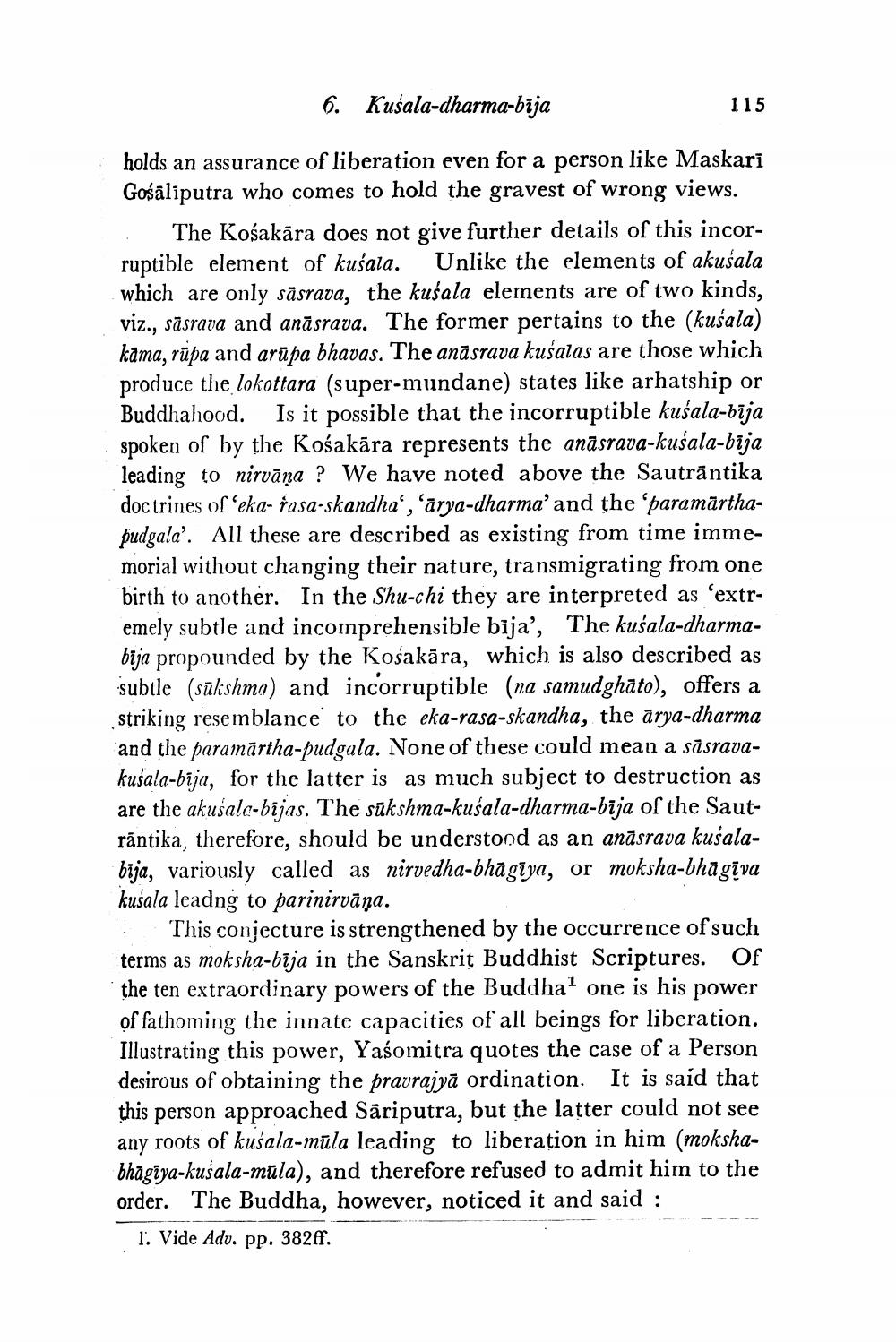________________ 6. Kusala-dharma-bija 115 holds an assurance of liberation even for a person like Maskari Gosaliputra who comes to hold the gravest of wrong views. : The Kosakara does not give further details of this incorruptible element of kusala. Unlike the elements of akusala which are only sasrava, the kusala elements are of two kinds, viz., sasrava and anasrava. The former pertains to the (kusala) kama, rupa and arupa bhavas. The anasrava kusalas are those which produce the lokottara (super-mundane) states like arhatship or Buddhahood. Is it possible that the incorruptible kusala-bija spoken of by the Kosakara represents the anasrava-kusala-bija leading to nirvana ? We have noted above the Sautrantika doctrines of "eka- tusa-skandha', 'arya-dharma' and the 'paramarthapudgala'. All these are described as existing from time immemorial without changing their nature, transmigrating from one birth to another. In the Shu-chi they are interpreted as 'extremely subtle and incomprehensible bija', The kusala-dharmabija propounded by the Kosakara, which is also described as subtle (sukshma) and incorruptible (na samudghato), offers a striking resemblance to the eka-rasa-skandha, the arya-dharma and the paramartha-pudgala. None of these could mean a sasravakusala-bija, for the latter is as much subject to destruction as are the akusalo-bijas. The sukshma-kusala-dharma-bija of the Sautrantika, therefore, should be understood as an anasrava kusalabija, variously called as nirvedha-bhagiya, or moksha-bhagiva kusala leadng to parinirvana. This conjecture is strengthened by the occurrence of such terms as moksha-bija in the Sanskrit Buddhist Scriptures. Of the ten extraordinary powers of the Buddha' one is his power of fathoming the innate capacities of all beings for liberation. Illustrating this power, Yasomitra quotes the case of a Person desirous of obtaining the pravrajya ordination. It is said that this person approached Sariputra, but the latter could not see any roots of kusala-mula leading to liberation in him (mokshabhagiya-kusala-mula), and therefore refused to admit him to the order. The Buddha, however, noticed it and said : 1. Vide Adv. pp. 382ff.




